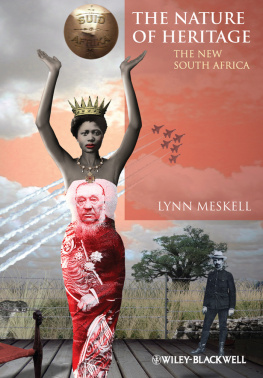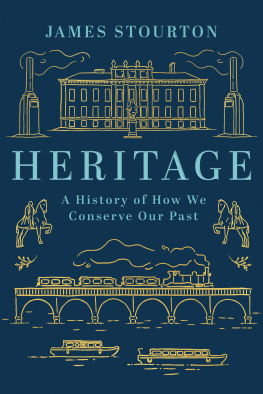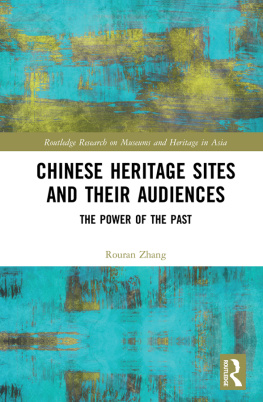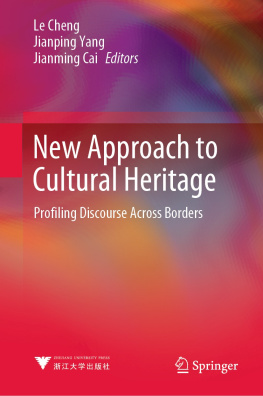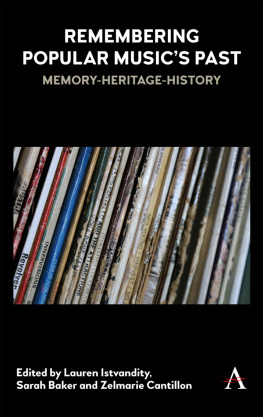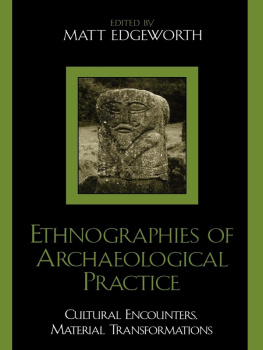This edition first published 2012
2012 John Wiley & Sons, Inc
Wiley-Blackwell is an imprint of John Wiley & Sons, formed by the merger of Wileys global Scientific, Technical and Medical business with Blackwell Publishing.
Registered Office
John Wiley & Sons Ltd, The Atrium, Southern Gate, Chichester, West Sussex, PO19 8SQ, UK
Editorial Offices
350 Main Street, Malden, MA 02148-5020, USA
9600 Garsington Road, Oxford, OX4 2DQ, UK
The Atrium, Southern Gate, Chichester, West Sussex, PO19 8SQ, UK
For details of our global editorial offices, for customer services, and for information about how to apply for permission to reuse the copyright material in this book please see our website at www.wiley.com/wiley-blackwell.
The right of Lynn Meskell to be identified as the author of this work has been asserted in accordance with the UK Copyright, Designs and Patents Act 1988.
All rights reserved. No part of this publication may be reproduced, stored in a retrieval system, or transmitted, in any form or by any means, electronic, mechanical, photocopying, recording or otherwise, except as permitted by the UK Copyright, Designs and Patents Act 1988, without the prior permission of the publisher.
Wiley also publishes its books in a variety of electronic formats. Some content that appears in print may not be available in electronic books.
Designations used by companies to distinguish their products are often claimed as trademarks. All brand names and product names used in this book are trade names, service marks, trademarks or registered trademarks of their respective owners. The publisher is not associated with any product or vendor mentioned in this book. This publication is designed to provide accurate and authoritative information in regard to the subject matter covered. It is sold on the understanding that the publisher is not engaged in rendering professional services. If professional advice or other expert assistance is required, the services of a competent professional should be sought.
Library of Congress Cataloging-in-Publication Data
Meskell, Lynn.
The nature of heritage : the new South Africa / Lynn Meskell.
p. cm.
Includes bibliographical references and index.
ISBN 978-0-470-67072-9 (hardcover : alk. paper) ISBN 978-0-470-67071-2 (pbk. : alk. paper)
1. Archaeology and HeritageSouth Africa. 2. EthnographySouth Africa. 3. Cultural propertySouth Africa. 4. Post-apartheid eraSouth Africa. 5. National characteristics, South African. 6. Kruger National Park (South Africa)History. 7. Kruger National Park (South Africa)Antiquities. 8. South AfricaRace relations. 9. South AfricaAntiquities. I. Title.
GN656.M47 2012
306.0968dc23
2011015895
A catalogue record for this book is available from the British Library.
This book is published in the following electronic formats: ePDFs 9781118106624; Mobi 9781118106648; ePub 9781118106631
For the people of Kruger National Park
past, present, and future
Acknowledgments
This book, and indeed all my work in South Africa, was made possible by one incredible organization. I owe an enormous debt to the Andrew W. Mellon Foundation, specifically the committee for the New Directions Fellowship that enabled me to shift my research focus from the archaeology of ancient Egypt to contemporary South African heritage. Their faith in this project, and their additional program support to bring young South African scholars to Stanford University, has been unfailing. Particularly, I want to express my gratitude to Joseph Meisel, Harriet Zuckerman, and William Robertson for their years of generosity and guidance. Without them I would not have had the privilege of working in South Africa all these years and collaborating with so many talented young scholars in the StanfordSouth Africa Heritage Exchange program. In addition, I am grateful for the generous support of the National Science Foundation, the Institute for Social and Economic Research and Policy (Columbia University), the Lang Fund (Stanford University), and the Clayman Institute (Stanford University).
My colleagues in South Africa have been inspirational and are the real reason why I was drawn to changing my research focus. The original invitation in 2002 by Martin Hall, Ben Smith and Geoff Blundell to lecture in South Africa had more impact than anyone could have envisaged. The National Research Foundation in South Africa kindly made that visit possible. Over the years the continued friendship, generosity, and intellectual insights from scholars at the University of the Witwatersrand has been invaluable, particularly Ben Smith, Geoff Blundell, Thembi Russell, Phil Bonner, and David Pearce. The transformative directions for heritage that Ben and Geoff have contributed through their work at the Rock Art Research Institute and Origins Center provided the key inspiration for my own work. They also facilitated my residency at Wits, thus cementing my commitment to the city of Johannesburg; they first introduced me to Kruger National Park and initiated me into the joys of biltong. Thembi Russell accompanied me on many of my fieldtrips to remote parts and braved spitting cobras, appalling roads, cultural villages, and my penchant for eating various antelopes. She taught me a great deal about being in South Africa and, from her critical vantage, its many potentials, not simply its problems. Martin Hall deserves special recognition as a mentor and friend whose pioneering research on the political economy of heritage in South Africa remains unsurpassed. This project owes an enormous debt to his unwavering intellectual presence.
Many people in South African National Parks deserve individual thanks for their time, enthusiasm, and support of the project. Without their contributions this book could not have been written. Edgar Neluvhalani and Sibongile Masuku Van Damme must be singled out for both inspiring and grounding my work, for their constancy and commitment, and their vision for a different South Africa. My life in Kruger was significantly enriched by living and working with Glynn Alard and Heidi Hansen, whose knowledge, patience, and good humor I can never fully repay. Thanyani Madzhuta has been there from the beginning and educated me about the history of Kruger and its communities inside and outside the fence. Among the many people who contributed to my fieldwork in and around Kruger are Emma Algotsson, Harry Biggs, Sue Eber, Mike English, Navashni Govender, Rina Grant, Patricia Khoza, Thembi Khoza, Leonard Luula, Sandra MacFadyen, Eric Makuleke, Patience Mdungasi, Bandile Mkhize, Precious Motubatse, Helen Mtheti, Danie Pienaar, Scott Ronaldson, Vanessa Strijdom, Randy Tanner, Raymond Travers, and Rene Travers. At Head Office in Pretoria I would like to thank Kevin Moore, Alexis Symonds, Johan Verhoof, and Rozena Waiget. From Mapungubwe National Park I would like to thank Paballo Mohofa, Cedric Sethlako, Allie Chauke, and Tzimingadzo Nemaheni.
I am deeply grateful to the elders and representatives of numerous communities around Kruger and Mapungubwe National Park, including the Makahane, Malatje, Machete, Vhangona, Lemba, Vhatwanamba and particularly Joseph Mkhabela and his family. Numerous residents in Musunda, Bende Mutale, Lilydale, Tshikuyu, Makushane, Welwerdiene, and Kliptown also shared their histories, time and ideas about heritage. In particular I want to acknowledge Joseph Endani, Alpheus Mapukumele, Freddie Mukosi Munzhelele, Alpheus Thomani Mudzanani, Bishop Malatji, Evans Malatji, Andries Makatikela, Andries Sihlangu, and the incomparable Philleos Machavi.
Other colleagues in South Africa who were generous with their time and research over the years include David Bunn, Jacklyn Cock, Gene Duiker, Amanda Esterhuysen, Simon Hall, Carolyn Hamilton, Nessa Leibhammer, David Lewis-Williams, Sibongile Masuku Van Damme, Clapperton Mavungha, David Morris, Cecilene Muller, Ndukuyakhe Ndlovu, Webber Ndoro, Sven Ouzman, John Parkington, Zarena Patel, Innocent Pikirayi, Steven Robbins, Collette Scheermeyer, Carmel Schrire, Alinah Segobye, Soul Shava, Nick Shepherd, and Leslie Witz. Les Carlisle and Lotus Khoza from AndBeyond, formerly Conservation Corporation Africa, have been generous with their time and support, introducing me to the people of Phinda, Bongani, and Ngala. Conrad de Rosner spent weeks each year with me in Bongani and Kruger, teaching me rock art recording, sharing new found sites and his knowledge of the Lowveld. His passion for South African heritage and the hospitality he extended to me and my colleagues was unstinting.

